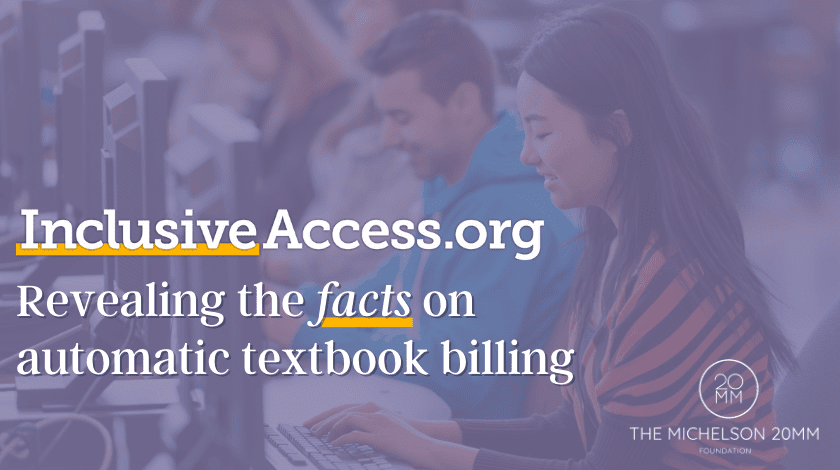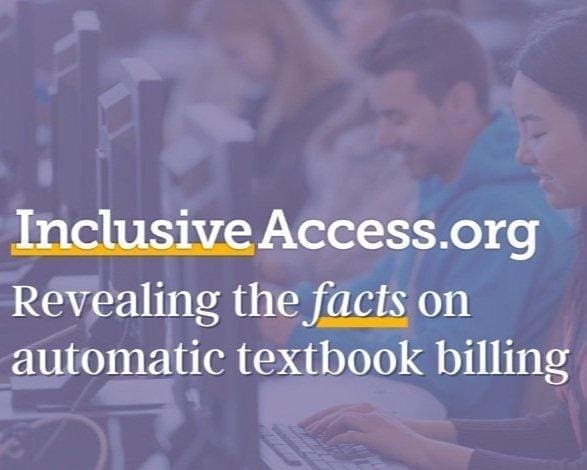Inclusive access is a billing mechanism which adds the cost of course materials directly to student’s tuition and fees.

Originally published on 20mm.org.
“Inclusive Access,” “First Day Access,” and “Equitable Access” may stir images of students using their course materials without barriers; however, the new website created by the Scholarly Publishing and Academic Resources Coalition (SPARC) tells a fuller picture. Rather than a product in and of itself, “inclusive access” and similar programs are a billing mechanism which adds the cost of course materials directly to student’s tuition and fees. This Michelson Spark Grant funded resource from SPARC, with partners from the Association of American Colleges and Universities, the Student PIRGs, ISKME, and others, provides institutions, educators, and students with resources and tools to determine if inclusive access makes sense for their campus.

Nicole Allen, SPARC’s Director of Open Education
“Right now, inclusive access has largely been driven by vendors who go to campuses and offer a program. And that’s backward, we want people to decide for themselves.” — Nicole Allen, SPARC’s Director of Open Education
In the past, when considering if such a contract was an appropriate fit it was challenging to find information beyond the marking materials for the products themselves. To address that, InclusiveAccess.org provides easy to understand perspectives on the different questions educators and institutions should be asking before signing on such as, What are the savings? Can students retain access to materials? What about student data?
“Right now, inclusive access has largely been driven by vendors who go to campuses and offer a program. And that’s backward, we want people to decide for themselves,” Nicole Allen, SPARC’s Director of Open Education shared with the Chronicle of Higher Education.
To do so, the website also links visitors to a contract library of similar deals across the country, giving a broader perspective on what many of these deals contain and powerful questions for policymakers concerned about the rising costs of higher education.
The launch of the website was met with a positive reception from the higher education community as a whole–both the Chronicle of Higher Education and Cory Doctorow covered the launch of InclusiveAccess.org. Doctorow‘s thread breaks down the long term trends and practices that allow publishers to “make out like bandits, at students’ expense” with the new billing mechanism as part of a long term move towards industry consolidation.
This is not the first time we have worked on this issue. In 2020, the Michelson 20MM Foundation funded US PIRG’s research into automatic textbook billing through the Spark Grant Program resulting in “Automatic Textbook Billing: An Offer Students Can’t Refuse.”
The report analysed the automatic textbook billing contracts of 31 colleges across the country and found that almost half of the contracts failed to disclose discount structures, nearly seventy percent discounts disappeared if participation quotas were not met, and a third had uncapped annual price increases.
Over the next months and years, we are excited to work with our partners across the higher education, nonprofit, and policy communities to continue to ensure students have real inclusive and equitable access to their course materials.
Michelson 20MM is a private, nonprofit foundation seeking to accelerate progress towards a more just world through grantmaking, operating programs, and impact investing. Co-chaired and funded by Alya and Gary Michelson, Michelson 20MM is part of the Michelson Philanthropies network of foundations.
To sign up for our newsletter, click here.

